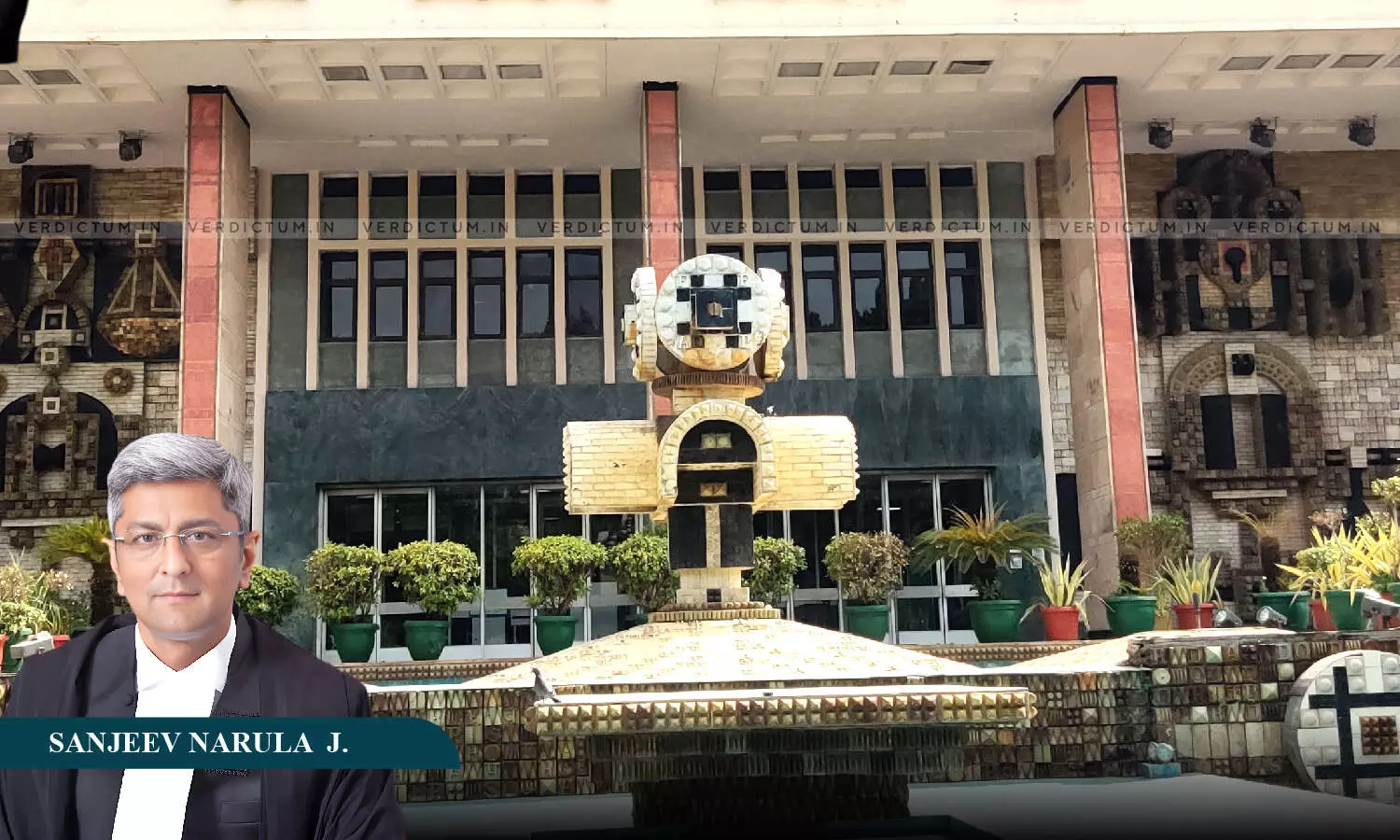
Justice Sanjeev Narula, Delhi High Court
Delhi High Court Orders Director General Prisons To Finalize SOP On Structured System Of Possession Of Mobile Phones By Open-Prison Inmates
 |
|The Petitioner, a life convict in a case registered under Sections 498A, 302 of the Indian Penal Code, approached the Delhi High Court challenging the order directing his transfer from an open prison to a closed prison.
The Delhi High Court has directed the Director General (Prisons) to frame and notify an SOP that either permits retention of mobile phones by open-prison inmates under regulated conditions, or establishes a secure deposit and return facility for hours when inmates are required to remain inside the open-prison precincts.
The Petitioner, a life convict in a case registered under Sections 498A, 302 of the Indian Penal Code, 1860, approached the High Court challenging the punishment imposed upon him under a ticket and the consequential order directing his transfer from the open prison to a closed prison.
In order to bring more clarity on the possession of prohibited items such as a mobile phone, the Single Bench of Justice Sanjeev Narula ordered, “The Court, therefore, directs the Director General (Prisons), after consulting relevant stakeholders, to frame and notify an SOP that either permits retention of mobile phones by open-prison inmates under regulated conditions, or establishes a secure deposit and return facility for hours when inmates are required to remain inside the open-prison precincts. It shall be finalised and made operational within eight weeks.”
Advocate Sarthak Maggon represented the Petitioner, while Additional Standing Counsel Rahul Tyagi represented the Respondent.
Factual Background
During a surprise inspection of the open prison, the authorities recovered from a Flat, where the Petitioner was lodged, one Samsung mobile phone with a battery, one Mobistar mobile phone with an in-built battery, two SIM cards, and two chargers. These articles were prohibited within the jail premises and constituted a breach of the prison rules. Following a hearing, the Petitioner’s Inmate Calling System (ICS) and canteen privileges were withdrawn for one month. The punishment was placed before the Inspecting Judge and, by an order, the same was judicially appraised. A transfer from the open prison to a closed prison followed thereafter.
Reasoning
The Bench noted that as per the latest nominal roll, the Petitioner had undergone 19 years, 2 months and 16 days of actual custody and earned remission of 3 years, 10 months and 9 days. His conduct column was marked “unsatisfactory” only on account of the solitary punishment ticket, which was the subject of the challenge. The nominal roll also noted that he had been granted parole and furlough on more than twenty occasions and had returned without adverse report.
The Bench noticed that the petitioner was concerned with his transfer from the open jail to a closed jail, which effectively curtailed the limited liberty he had earned through years of good conduct. Such a consequence, according to the Bench, trenched upon personal freedom, and although triggered by a punishment ticket, it called for closer scrutiny on legality, process, and proportionality.
“Rule 1270 of the Delhi Prison Rules, 2018 is explicit. No punishment, denial of privileges or amenities, or transfer to another prison with penal consequences may be imposed without judicial appraisal. The punishment ticket does not propose, much less reason, a transfer. The order of judicial appraisal dated 18th August, 2020, also does not examine whether reclassification was warranted, whether lesser measures would suffice, or how the transfer comports with proportionality. In the absence of a specific, reasoned judicial appraisal on the transfer itself, the move from open to closed prison cannot be sustained. That is an added ground to interfere”, it added.
The Bench took note of the submission of the ASC for the State, that there is a mechanism for special permission to possess otherwise prohibited items, including a mobile phone, within the jail premises, but there is no clarity on any structured deposit-and-return system for open prison inmates. Thus, the Bench directed the Director General (Prisons), to frame and notify an SOP with respect to the same.
On the facts of the case, the Bench set aside the punishment ticket and all consequential directions flowing from that ticket, including the transfer from open to closed prison. “The Petitioner shall be restored to the position he held immediately prior to the impugned action, subject to any fresh, reasoned decision of the Selection Committee taken in accordance with law and these directions”, it directed.
Cause Title: Surender Kumar v. State of NCT of Delhi (Neutral Citation: W.P.(CRL) 2747/2025)
Appearance
Petitioner: Advocate Sarthak Maggon
Respondent: Additional Standing Counsel (Crl.) Rahul Tyagi, Advocates Sangeet Sibou, Priyansh Raj Singh Senger, Aniket Kumar and Insp. Sahi Ram